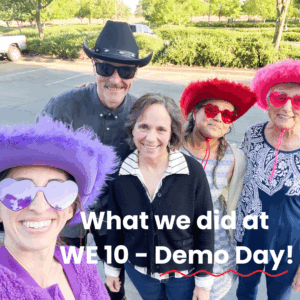When success no longer feels satisfying, it may be time to pause, reflect, and redefine what “more” means for you. This post offers steps to help you reconnect with what brings energy and meaning—and reminds you that feeling stuck is often the start of something...
Read MoreCoaching for Mediators
Upgrade Your Practice
How Coaching Skills will Upgrade the Mediator’s Practice
Have you ever considered the value of adding Professional Coaching expertise and designation to your portfolio? If you are a mediator, you clearly have many valuable skills already. Becoming a certified Professional Coach will improve and upgrade those skillsets. It will set you apart from other mediators. It will afford you additional proficiencies, particularly in the areas of communication and problem-solving. Coach Training will provide a significant amount of practice in a different context and provide direct feedback on your abilities. I have joined with a Santa Barbara Mediator to outline the value that becoming a Professional Coach will add to your practice:




